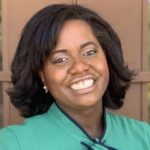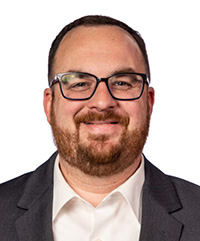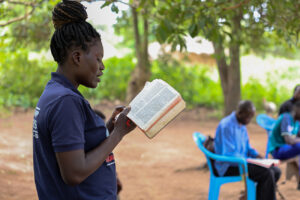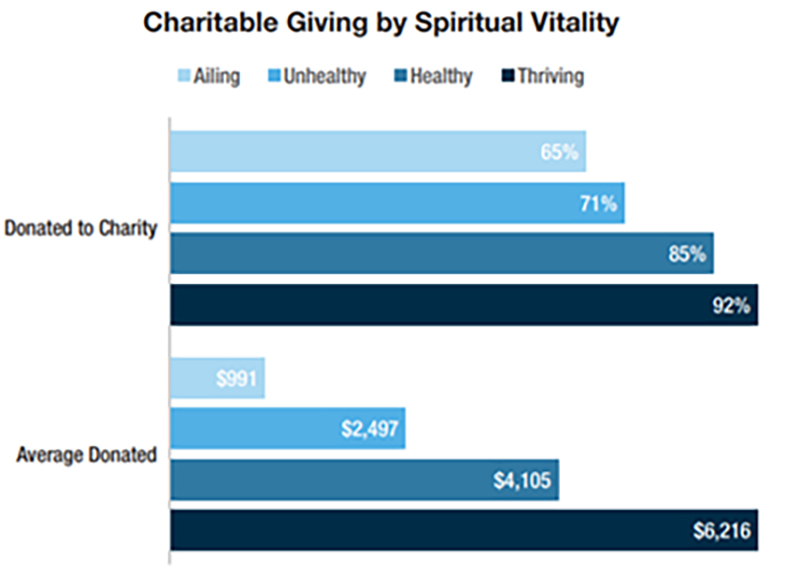Four Christian leaders oppose state-funded Catholic school
WASHINGTON (RNS)—Four Christian leaders and education advocates are seeking the Oklahoma Supreme Court’s permission to join a lawsuit filed by the state’s attorney general that aims to prevent the opening of an online Catholic charter school.
The plaintiffs—Melissa Abdo, Bruce Prescott, Mitch Randall and Lori Walke—contend the Oklahoma Statewide Virtual Charter School Board’s decision to sponsor the St. Isidore of Seville Catholic Virtual School undermines religious freedom in the state and will lead to discrimination against nonreligious students.
“The separation of church and state is not the sole responsibility of the state. The church has to do its part to hold that line and continue to honor that separation,” Walke said.
St. Isidore of Seville Catholic Virtual School would be the country’s first publicly funded religious charter school.
Attorney General Gentner Drummond has argued in his own filings the decision violates Oklahoma’s Constitution. He has said he is ready to take the case to the U.S. Supreme Court if needed.
The Oklahoma faith leaders are represented in their effort to sway the case by Americans United for the Separation of Church and State, the American Civil Liberties Union, the Education Law Center and the Freedom From Religion Foundation. They previously filed a separate lawsuit in a district court this summer.
The board is represented by the conservative Christian legal group Alliance Defending Freedom.
Accountable to taxpayers
When she learned about the board’s decision to allocate public funds to St. Isidore, Abdo, a Catholic resident of Tulsa County, immediately felt the need to counter assumptions that the lawsuit was an anti-Catholic effort.
“I’m Catholic. This happens to be a Catholic school effort. But I would never expect people of another faith to pay for educating children in the Catholic faith,” she said.
A longtime public education advocate, Abdo sits on the public school board in Jenks, Okla., a suburb of Tulsa, and the Oklahoma State School Boards Association board of directors.
Besides her misgivings about religious freedom, she also expressed concerns about whether St. Isidore will be able to comply with all obligations imposed on public schools, such as holding open meetings and keeping records open.
“It’s a very big responsibility when we are accountable to the taxpayers because they’re paying for school,” she said.
The senior minister of Mayflower Congregational Church in Oklahoma City for the past 15 years, Walke said her advocacy for the separation of state and church stemmed from her Southern Baptist upbringing.
Her church, which is aligned with the United Church of Christ, counts many queer parishioners, and Walke said she is worried St. Isidore will discriminate against LGBTQ+ students.
“They explicitly state that they are going to be part of the evangelizing mission of the church. … Of course, they mean their particular flavor and brand of Christianity, which does happen to be homophobic, not to mention misogynist,” she said.
She said she also fears that support for St. Isidore will siphon funds from Oklahoma public schools.
St. Isidore arises from a joint effort of the Oklahoma City and Tulsa archdioceses. The board rejected the school’s application in April before approving it in June. In October, it issued a formal contract of sponsorship. The application is now in the charter agreement phase.
‘Open-door enrollment policy’
Brett A. Farley, executive director of the Catholic Conference of Oklahoma, said claims that St. Isidore will discriminate against certain students are unfounded.
“Catholic schools have always maintained an open-door enrollment policy, so claims of alleged discrimination are politically motivated and untrue,” he said in an email.
He estimated the student bodies of the Catholic schools in the state are 25 percent non-Catholic on average.
On its website, St. Isidore said it will offer “the best of the Catholic intellectual tradition” and comply with the Congregation for Catholic Education’s recommendations. This 1997 document promotes a religious education, respectful of parents’ inputs, and directed “toward the whole person—body, mind, soul and spirit.”
St. Isidore plans to open for the 2024-25 school year and aims to serve 1,500 students after five years of operation.
Farley noted that other Oklahoma religious schools are already receiving public funds through “the Lindsey Nicole Henry scholarship program, the Equal Opportunity Scholarship program, and the newly-created Parental Choice Tax Credit.”
St. Isidore’s right to exist is backed by the state’s superintendent of public instruction, Ryan Walters, who said the lawsuit “discriminates against some Oklahomans due to their faith.”
In February, Oklahoma Gov. Kevin Stitt also voiced his support for the Catholic charter school. “Am I supportive of the Catholics going out and setting up a Catholic charter school? 100 percent. I think that’s great,” he said at a news conference, adding, “Just like I don’t shy away from my faith, I don’t expect anybody to shy away from their faith, either.”
Discrimination ‘funded by government money’

Like Walke, Randall said he was inspired by his own Southern Baptist education. A Baptist minister and CEO of Good Faith Media, Randall is also a citizen of the Muscogee (Creek) Nation, a Native American tribe located in Okmulgee, Okla.
“When I hear about public funding of religious education, it really concerns me not only as a Christian but also as an Indigenous person, that discrimination will be funded by government money,” he said.
Randall’s grandmother attended Chilocco’s Indian school, a missionary boarding school for Native Americans that operated from 1884 to 1980. At Chilocco, students endured forced assimilation and were encouraged to cut their hair, exchange their clothes and abandon their native tongue, Randall said.
“I know from the stories of my grandmother and her relatives what happens when the church is given federal dollars to assimilate a large swath of people towards their belief,” said Randall.

Prescott, a retired Baptist minister, is primarily concerned that St. Isidore will be unable to welcome students with special needs. During the 1960s, Prescott worked as an educator in a private religious school in Houston and said the institution struggled to meet disabled students’ needs.
He said public schools are better positioned to welcome these students and should receive the entirety of public funding.
“Religion and religious education need to be paid for by their constituents. Voluntary contribution is how we’ve always done it,” he said.



 On Nov. 5, as the last notes of “Redemption Draweth Nigh,” a hymn about Jesus’ return, resonated in First Baptist’s 3,000-seat sanctuary, Jeffress asked his audience, “Are we actually living in what the Bible calls the End Times?”
On Nov. 5, as the last notes of “Redemption Draweth Nigh,” a hymn about Jesus’ return, resonated in First Baptist’s 3,000-seat sanctuary, Jeffress asked his audience, “Are we actually living in what the Bible calls the End Times?”







 Food insecurity refers to the inability of households to acquire adequate food, at times, for one or more household members. The prevalence of food insecurity in the state presents both challenges and opportunities for Texas Baptists as they seek to minister to human needs in Christ’s name.
Food insecurity refers to the inability of households to acquire adequate food, at times, for one or more household members. The prevalence of food insecurity in the state presents both challenges and opportunities for Texas Baptists as they seek to minister to human needs in Christ’s name. The food insecurity rates last year were significantly higher for households with children (17.3 percent), households with children under age 6 (16.7 percent), and households with children headed by a single female (33.1 percent) or a single male (21.2 percent).
The food insecurity rates last year were significantly higher for households with children (17.3 percent), households with children under age 6 (16.7 percent), and households with children headed by a single female (33.1 percent) or a single male (21.2 percent).

